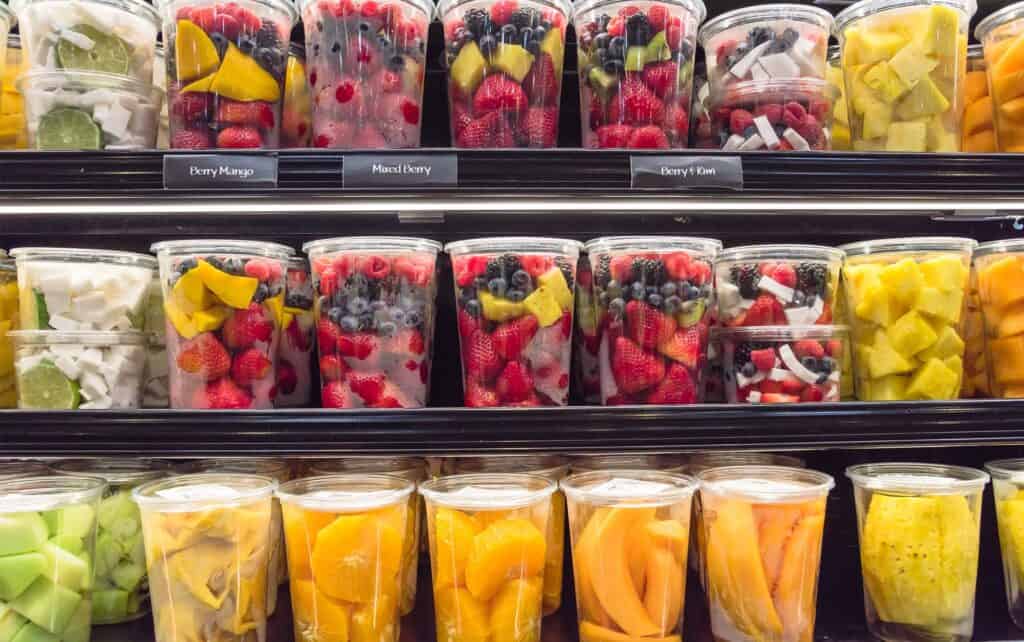
Remember that sandwich you had for lunch? Bad news, it wasn’t just turkey and swiss.
It’s no secret that contaminated food causes serious health issues once ingested. What people don’t know, however, is how complex, varied, and dangerous the different types of food contamination can be.
So pull up a chair, grab a napkin, and let’s dive into the unsavory flavor of food contamination.
Four Types of Food Contamination Commonly Found in Today’s Products
Biological Contamination
Biological contamination occurs when microorganisms make their way into the food supply. Also applicable to pathogens, there are three main categories of biological contaminants:
- Bacteria: E Coli, Salmonella, and Listeria are the main culprits behind bacterial contamination. They mostly enter our food chain through water, feed, or soil, but it can also happen inside food processing plants.
- Viruses: Viral contamination is spread when sick workers handle food products, transmitting illnesses like Norovirus, Hepatitis A, and Rotavirus.
- Parasites: Parasites are living organisms that feed off of their host and cause disease if ingested, such as roundworms, tapeworms, and cryptosporidium.
Chemical Contamination
Chemical contaminants enter the food supply at any stage of production, from farming to packaging. The following agents bring serious health implications for consumers:
- Ag Chemicals: Widely used in modern agriculture, these chemicals (insecticides, herbicides, fungicides, etc.) were originally created to control pests. However, they’ve now managed to slip into the food supply, being linked to a number of adverse effects.
- Heavy Metals: Accumulating in food due to industrial pollution or agricultural runoff, lead, mercury, arsenic, and cadmium all fall into this category. They are linked to a variety of health problems including cancer, neurological disorders, reproductive issues, and kidney damage.
Allergenic Contamination
For the wrong consumer, an allergic reaction can spell disaster. With the rising prevalence of food allergies, every food processing company should stay diligent about monitoring the level of allergenic compounds present in their products, including but not limited to:
- Gluten
- Tree nuts
- Peanuts
- Soy
- Shellfish
- Fish
- Eggs
- Milk
Physical Contamination
While last on the list, physical contamination can be very dangerous and is arguably one of the most important to control. Any material not intended to be part of the finished product (metals, glass, plastic, debris) fall into this category. Foreign objects can often enter our food supply through improper and / insufficient prevention measures, and at various stages of food production.
Need an effective way to stop foreign objects from reaching your consumers? You need to assess the quality of prevention procedures on a regular basis.
Out of All the Physical Contaminants in Food Products, Why Do Metals Require Extra Attention?
Metals provide major threats to the sanctity of safe and efficient food production:
Health Risks: Metal contamination causes serious health issues for consumers, as it’s linked to gastrointestinal problems, kidney stones, anemia, and more. In extreme cases, ingestion of metal shards can cause very serious health issues and be potentially deadly.
Safety Risks: Metal fragments that find their way into the food supply can cause serious injuries, like lacerations or punctures. If your consumers were to ingest them unknowingly, it could deal significant damage to your company’s reputation.
Legal Risks: In the food industry, processing facilities who can’t adhere to safety standards and are not seen to be taking the most responsible preventative measures they possibly can are met with a swift dose of litigation. Whether this legal liability comes in the form of fines, penalties, or other sanctions, the end result is always a drain to your bottom line.
Reputation & Relationship Risks: A recall can be very damaging to a brand’s reputation and can seriously affect the way consumers and other companies view and rely on your brand and product for years into the future.
Financial Risks: Recalls are very costly. They typically result in lost production and vast product wastage.
Simply put, it pays to combat metal contamination. That’s why you need a reliable partner with decades of service under their belt, tried-and-true methods, and industry-leading equipment, designed with the food industry FOR the food industry.
When Reliability Matters, Turn to Magnattack®
Over the course of half a century, Magnattack® has become the industry-leader in magnetic separators for foreign metal fragment control and food safety. With global headquarters in Australia, and U.S. headquarters in Minnesota, our mission remains simple—provide highly-effective magnetic separation systems designed to:
- Reduce metal contamination risks
- Improve product purity and food safety
- Protect brand reputation and image
- Cut equipment damage and downtime for repair/maintenance
- Uncover the risks
Get in touch to learn more, and let’s bolster your approach to food contamination.
